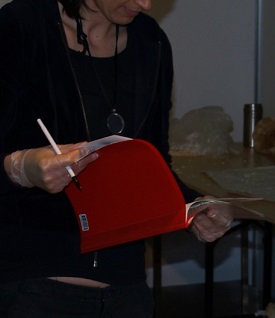
Write more efficiently and effectively!
Communication and writing skills are highly regarded across all employment sectors. In this course, you'll learn how to define purpose in your writing, write material that serves both your purpose and the reader, and create material that shines.
Course Duration: 100 hrs
Course Content
The course is comprised of 6 lessons:
- Introduction
- Writing for business
- Writing for study
- Writing for enjoyment
- Types of documents
- Key points
- Types of communication
- Terminology
- Basic Writing Skills
- Speech parts and grammar
- Parts of speech
- Sentence structure
- Modifiers
- Phrases
- Linking Words
- Clear Wording
- Common causes of confusion
- Making meaning clear
- Glossing and defining
- Types of language
- Paragraph structure
- Appropriate language
- Concise Wording
- Condensing your writing
- Common problems and concision
- Active voice
- Passive voice
- Condensing existing text
- Punctuation and Accuracy
- Punctuation, including colons, semi-colons, en and em dashes, and commas
- Spelling, spelling rules, and an overview of American and English spelling
- Using writing skills to write letters, essays, and more
- Planning what you write
The Efficient Writing course is an individual module course lasting 100 hours. At the end of each lesson, you complete an assignment and set task, which are sent to us for marking.
Course Aims
- Define the nature and scope of writing.
- Discuss the way written sentences and paragraphs are properly structured.
- Develop an increased capacity to write clearly.
- Learn to write concisely.
- Develop improved punctuation skills.
- Apply basic writing skills more efficiently in a range of situations.
Learning to Write Better is Learning to Communicate More Effectively
 If you want to write efficiently, you need to understand and follow the conventions and rules of language.
If you want to write efficiently, you need to understand and follow the conventions and rules of language.
Language is made up of different types of words and the ways in which different words should and should not be used are well defined according to different uses.
Sentences are compilations of words, and paragraphs are compilations of sentences. This course doesn't just tell you what the rules of efficient and effective writing are. It guides and reinforces your learning to a point where you are well on the path to using them unconsciously. When writing properly becomes automatic; the things you write will be clearer and more natural.
Consider the Use of "Articles" in Sentences
Articles are words such as "the" which are used along with "nouns".
A noun is often preceded by an article. An article is a word that tells us:
- if the speaker is talking about a particular noun (e.g. Give me the apple = a particular apple)
- if a speaker is not talking about a particular noun (e.g. Give me an apple = any apple)
English has two kinds of articles:
- the definite article the, and
- the indefinite articles a or an
In the above sentences, the definite article is in bold font, while the indefinite article is underlined. Note that the nouns ‘speaker’ and ‘apple’ are preceded by different articles, depending on the situation.
In general, we use the indefinite article a or an to refer to an unidentified or unspecified noun, or a noun that has not yet been mentioned. We use the definite article the to refer to a particular noun, or to refer to a noun that has already been mentioned.
Example: When we first see a car, we may not notice its faults. However, careful scrutiny will often reveal that the car is older or in worse condition that we first thought.
Example: I bought a good book but after I finished lunch at a nearby café, I realised that the book was not in my bag.
Example: She would like a fish for dinner, but the fish in the market are old.
When to use an article
When we talk about a noun in general, we do not use an article.
In the sentence, “Life is sweet”, we are talking about life in general.
Other examples:
- Cars are causing great pollution.
- Bacteria can cause illness.
- Research shows that people with religion live longer than those without.
Where we refer to a specific instance, we use the articles a or an:
- I commit an hour a day to meditation.
- There is no better companion than a friend.
- What a cloudy day this is.
In the sentence, “The life of a child is infinitely precious”, we mean in particular a child’s life.
Other examples:
- I have stopped trying to learn the answers to life’s questions.
- At the seminar, we learnt that the business person who wants to succeed must become a good communicator.

WHO CAN BENEFIT FROM THIS COURSE
Despite compulsory education for all children and adults; many still struggle during childhood to develop the writing skills which are needed for success in later life.
If writing doesn't come "naturally"; it can only improve by taking this course.
You may find that an inability to write well, is a hinderance to your employment or career advancement prospects. Perhaps you struggle in other parts of your life as well. This is a course that can be approached at your own pace; and for some people, being able to take things slower can make all the difference to learning to write better.
Let us help you write better -a skill that can help in so many different parts of your life.
WHAT NEXT?
Register to Study - Go to “It’s Easy to Enrol” box at the top of the page and you can enrol now.
or
Get Advice – Email us at info@acsedu.co.uk OR
Use our FREE COUNSELLING SERVICE to contact a tutor
CLICK TO CONTACT US